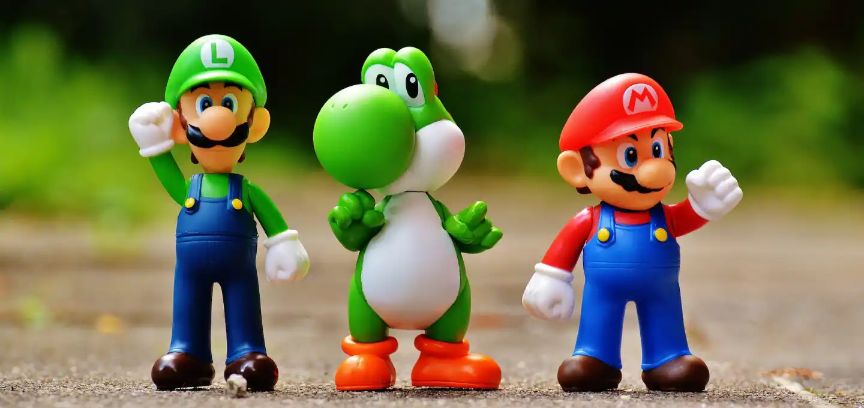Charting the Seas of Change: Eiichiro Oda's Evolution on 'One Piece' Live-Action Adaptation
4 min read
16 Aug 2024
Eiichiro Oda, the mastermind behind the immensely popular manga and anime series "One Piece," has long been known for his hesitance regarding live-action adaptations of his work. For years, he staunchly opposed the idea of bringing his intricate and fantastical world to the live-action format, citing concerns about preserving the essence of the story and characters. However, in a surprising turn of events, Oda's stance underwent a transformation, and he announced his collaboration with Netflix for a live-action adaptation of "One Piece." This marked a significant departure from his previous stance, leaving fans intrigued about the reasons behind this change of heart.
The journey of "One Piece" began in 1997 when Eiichiro Oda introduced readers to a world of pirates, treasure, and the pursuit of dreams. Over the years, the series has amassed an enormous fanbase and has become one of the most successful and enduring manga and anime franchises of all time. Oda's intricate storytelling, unique character designs, and intricate world-building have been integral to its success.
Given the series' monumental success, discussions about a live-action adaptation were inevitable. However, Oda had repeatedly expressed his concerns about the challenges of translating his richly layered universe into the constraints of live-action. He worried that the fantastical elements, the exaggerated character features, and the complex narratives might not translate well to the medium, potentially resulting in a lackluster adaptation that disappoints fans.

One can argue that Oda's initial resistance was not unfounded. History is rife with examples of beloved franchises that stumbled when transitioning from animation or literature to live-action. The discrepancies in visual aesthetics, casting controversies, and deviations from the source material often led to polarized reactions from fans and critics alike. This is a scenario that creators like Oda understandably wished to avoid, knowing the fervent dedication of their fanbase.
However, as time progressed and technology advanced, the landscape of live-action adaptations began to change. Hollywood, in particular, made remarkable strides in bringing fantastical worlds to life through advanced CGI and innovative production techniques. Movies and series that were once deemed unfilmable due to their intricate settings and characters were being successfully adapted, paving the way for creators like Oda to reconsider their stance.
Oda's change of heart can also be attributed to the evolving attitude toward adaptations in the entertainment industry. The success of Marvel Cinematic Universe (MCU) demonstrated that faithful adaptations, combined with creative storytelling, could lead to both critical acclaim and box office success. This success demonstrated that audiences were more accepting of adaptations that remained true to the spirit of the source material while making necessary adjustments for the new medium.
In an interview, Oda revealed, "I had always felt the difficulty in live-action adaptations was that 'One Piece' was a pirate story that involved a lot of water, and I thought that would be too difficult for the real world." This concern about capturing the essence of his world, particularly the vast oceans, had been a major hurdle for Oda. However, as streaming platforms like Netflix began to pour significant resources into high-quality adaptations, the feasibility of creating visually stunning water-centric scenes started to increase.
The announcement of the collaboration with Netflix showcased Oda's newfound confidence in the platform's commitment to staying true to his vision. He expressed, "When I saw Netflix's policy of making their adaptations a faithful representation of the original content, it made me think that it was possible." This acknowledgment of Netflix's dedication to preserving the essence of the source material while leveraging the strengths of the live-action medium was a pivotal factor in Oda's change of stance.
Furthermore, the global reach of streaming platforms also played a crucial role. The potential to introduce "One Piece" to a wider audience, including those who might not typically engage with manga or anime, was an enticing prospect for Oda. He recognized that a live-action adaptation had the power to bridge cultural gaps and expand the franchise's fanbase, ultimately introducing his beloved creation to a new generation of fans.
Oda's change of heart also reflects a broader shift in the dynamics between creators and adaptations. While the fear of compromising artistic integrity still remains, creators are increasingly realizing that adaptations can serve as an opportunity to reimagine and reintroduce their work to different audiences. With the rise of transmedia storytelling, where stories are told across multiple platforms and mediums, the traditional boundaries between original works and adaptations have started to blur.
It's worth noting that Oda's decision is not without risks. The pressure to deliver a faithful and visually stunning adaptation remains immense. The challenge lies in striking a balance between adhering to the source material and allowing the live-action format to add new dimensions to the story. Oda himself acknowledged this challenge, stating, "I still believe that live-action adaptations are a minefield that could destroy the original work, so I don't have any confidence." This candid admission reflects the weight of responsibility that comes with adapting a beloved and iconic series.
In conclusion, Eiichiro Oda's decision to embrace a live-action adaptation of "One Piece" marks a significant evolution in his perspective on the matter. While his initial concerns about preserving the essence of his world were valid, the changing landscape of the entertainment industry, advancements in technology, and the dedication of platforms like Netflix to faithful adaptations played a pivotal role in altering his stance. Oda's willingness to explore new avenues for storytelling while remaining cautious about the challenges ahead highlights the delicate balance that creators must navigate when contemplating adaptations. As fans eagerly await further developments, one thing is certain: the journey to bring "One Piece" to live-action will be an adventure in and of itself, filled with both excitement and trepidation.


